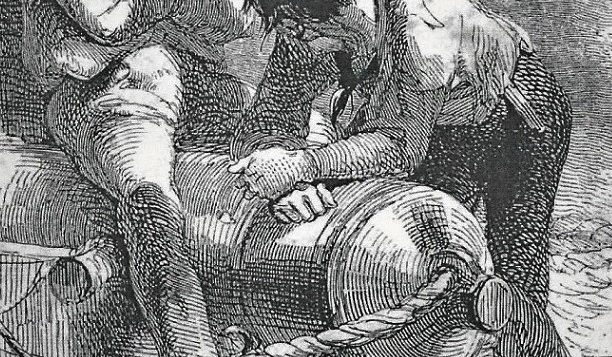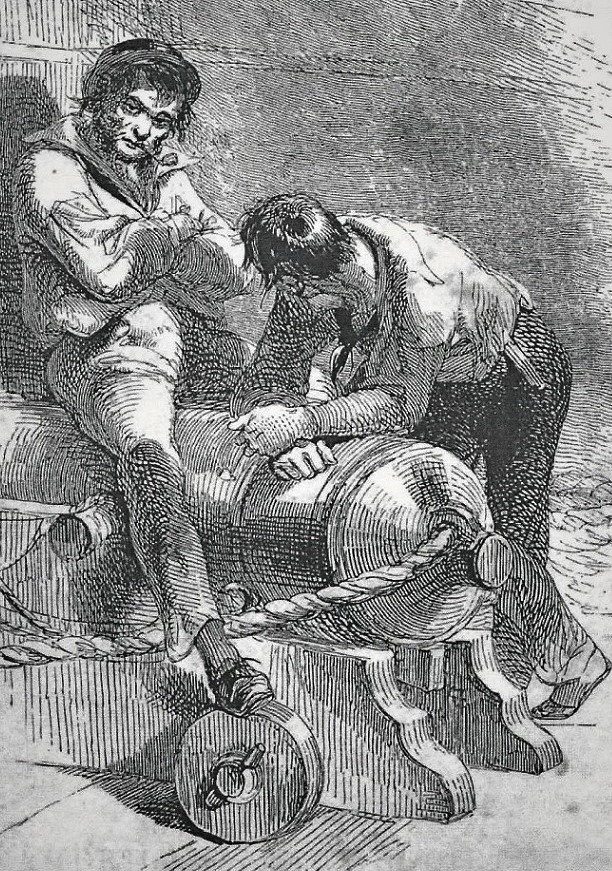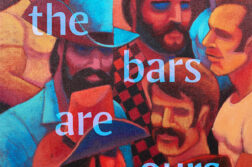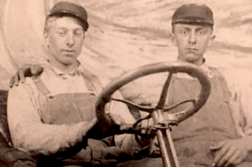IN MAY 1835, an American sailor named John Fryer swallowed four spoonfuls of turpentine and quicksilver, and hid himself under a berth in the fo’c’sle of the whaler Emily Morgan. For a second time, Fryer had been caught “trying to have connection with David Stanton in his hindermost parts.” Fryer was humiliated and miserably unhappy, and he wanted to die.
Same-sex encounters were fairly common aboard American ships in the 19th century, most frequently mutual masturbation, which was known by the seamen as “going chaw for chaw.” There were also shipboard romances, though these required a good deal of discretion, as they were officially forbidden by the captain and generally disparaged by the crew. Privacy on a crowded ship was at a premium, but aboard a U.S. Navy vessel, sexual encounters could be managed “between the guns,” i.e., in the shielded space between cannons. On merchant ships, which lacked these armaments, there was always a large cargo hold where trysting space could be found. The overarching rule was that all sexual encounters must be consensual, and it was this rule that John Fryer had violated, twice. It seems his shipmate, David Stanton, did not wish to have connection in his hindermost parts.
Fryer’s story is one of hundreds hidden in the logbooks of America’s maritime history. There was no convention of officially reporting such sexual misconduct that occurred at sea, and transgressions were often recorded only in the captain’s log, considered his personal property. Many logs were simply burned or pulped when they were no longer needed, but many survive, and they can provide an intimate view of life aboard America’s merchant ships. Occasionally a researcher runs across other sources as well. John Fryer’s story is related in an extraordinary affidavit prepared by the captain of the whaler Emily Morgan, and it is of particular interest because Fryer was a person of color.
William Benemann is the author of Unruly Desires: American Sailors and Homosexualities in the Age of Sail (2019).








Discussion1 Comment
Hello Bill! Enjoyed the book very much. Happy birthday, too.